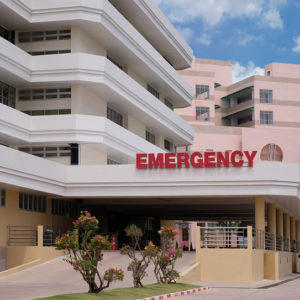As an organization that advocates for competent care, effective policy and comprehensive services for people who use drugs (PWUD) and communities impacted by drug use, the Pennsylvania Harm Reduction Coalition (PAHRC) is extremely concerned that, absent action by Pennsylvania officials, hospitals may not be able to keep their doors open after suffering enormous financial losses during the COVID-19 pandemic.
Pennsylvania’s frontline for healthcare needs the governor and state lawmakers to provide them with COVID-19 financial relief now — and I’ll explain why.
Among our many community initiatives, PAHRC runs multipronged efforts to expand access to lifesaving evidence-based strategies — including sterile injection equipment, naloxone, medication-assisted treatment and other harm reduction-oriented services throughout the state. We also train countless professionals in the disease of addiction, harm reduction and overdose prevention methods.
Considering that 2018 saw Pennsylvania suffer nearly 5,000 overdose deaths, and the pandemic makes it highly likely we will see even higher numbers, we have our work cut out for us.
The people we serve, particularly those actively using drugs, incarcerated, returning to society from incarceration, and in or seeking treatment, already face immense challenges finding healthcare, housing, employment, and other stabilizing health and social services. These risks are exacerbated by pervasive stigma, marginalization and discrimination within virtually every system in our society.
COVID-19 takes these challenges to a new level. Physical and mental health issues are rapidly escalating and will continue for the foreseeable future. The need for a robust, highly functional healthcare system that delivers efficient and quality care is more important than ever.
Pennsylvania hospitals have faced the COVID-19 pandemic head on, managed an infinite number of unprecedented challenges and succeeded by virtually every measure in protecting the health of our citizens. This is not to be taken lightly, especially considering the financial burden this success has placed on a healthcare system that has always operated with just enough.
The American Hospital Association estimates our hospitals and health systems will lose $50.7 billion monthly due to the pandemic. In Pennsylvania, hospitals are losing more than an estimated $1.5 billion each month — this is not sustainable.
The mounting financial crisis is staggering: Losses this year for hospitals could easily exceed $10 billion in Pennsylvania, according to a study commissioned by The Hospital and Healthsystem Association of Pennsylvania.
This comes as our hospitals are already in trouble — 34 percent of general acute care hospitals operated in the red last year, and another 29 percent have operating margins from 0 percent to 4 percent, according to the Pennsylvania Health Care Cost Containment Council’s most recent hospital financial analysis.
With increased awareness of mental health challenges and substance use disorders, our healthcare systems have been working hard to better serve a community that has historically been underserved.
Improved engagement, warm handoff programs, naloxone distribution, access to medication-assisted treatment — and real discussions about substance use disorders, stigma and systemic barriers that hold people down — have all been expanding widely and improving lives.
Hospitals across the state have seen their censuses drop and widespread cancellations of scheduled services that make up a significant portion of a hospital’s revenue. At the same time they have had to invest in additional staff support, supplies, personal protective equipment and other needs to treat a rapidly growing number of patients with COVID-19.
If we don’t take action now, hospitals could be forced to lay off critical employees, scale back services — or close.
Facility closures endanger the lives of PWUD, their families and their communities. It limits access to healthcare, peer support, education, treatment and emergency care across the commonwealth.
The strides we’ve made in improving access to healthcare, reducing overdose deaths and improving lives have been significant but could quickly vanish if we don’t invest in our health systems now.
Our hospitals serve many critical functions and are a lifeline for PWUD and our communities. This lifeline is critical now, and investing in it will pay dividends well into the future.

